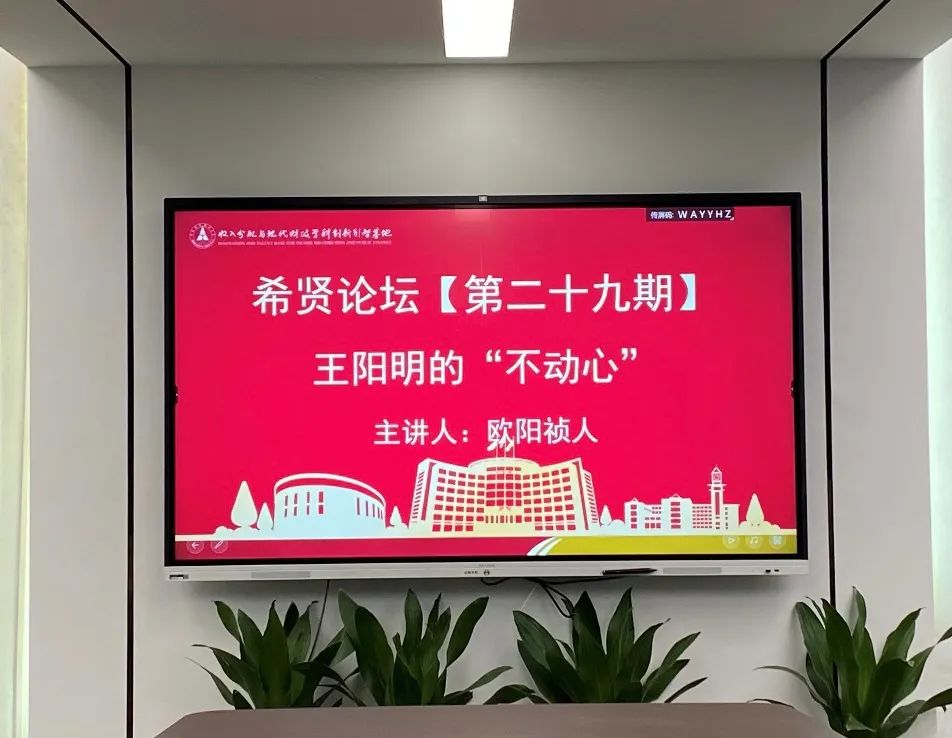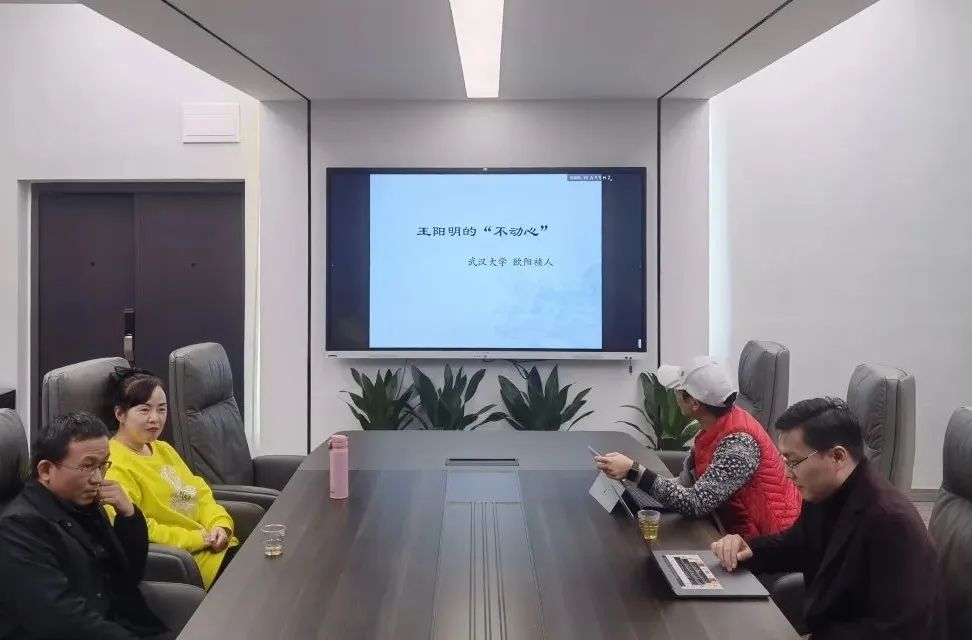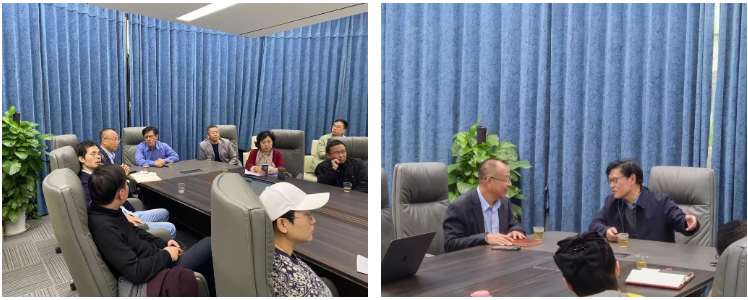
The 29th Xi Xian Forum, co-organized by IIDPF and the School of Public Finance and Taxation, was successfully held on November 17, 2022 in Conference Room 119 of Wenqin Building. Professor Ouyang Zhenren from the Center for the Study of Chinese Traditional Culture of Wuhan University was invited to give a speech on "Wang Yangming's Mind Like Water" as the keynote speaker of the 29th Academic Forum. The forum was chaired by Professor Sun Qunli, Deputy Director of IIDPF, and was attended by more than 20 students and faculty members, including Professor Zhang Kezhong, Dean of the School of Public Finance and Taxation, Professor Guo Yuemei, Professor Lu Yuanping, Executive Director of IIDPF, and Researcher Professor Ke Ling.

Wang Yangming (1472-1529), originally Wang Yun, was a native of Yuyao, Zhejiang Province. He was an outstanding thinker, writer, militarist and educator of the Ming Dynasty. Professor Ouyang pointed out that Wang Yangming had the experience of "five indulgences and five metamorphoses" in his life. The "five indulgences" refer to his obsession with chivalry, archery, poetry, divinity and Buddhism, while the "three metamorphoses" refer to the three changes in the methods and contents used by Wang Yangming in educating his students: from "unity of knowledge and action The "three metamorphoses" refer to the three changes in the methods and contents used by Wang Yangming in educating his students: from "unity of knowledge and action" to "meditation and clarification" to the final realization of "to conscience".Wang Yangming experienced many ups and downs in his life, but his heart for his country remained unchanged. Professor Ouyang concluded that Wang Yangming's theoretical contribution lies in his rejection of the Confucianism of Confucius and Mencius as an unchanging precept and his emphasis on individual initiative.

Professor Ouyang gave a fascinating lecture to the faculty and students in the audience while also provoking deeper thoughts on the research topic. During the discussion session, there were extensive exchanges fromfaculty and students on philosophical propositions such as "Mind as Principle" and "To Conscience".Professor Ouyang's sharing not only deepened the understanding of Wang Yangming's "mind like water", but also brought a new perspective to the local theory of economics and management.
